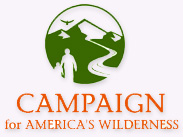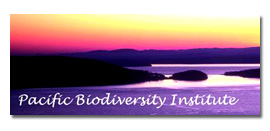
FOREVER WILD: CELEBRATING AMERICA’S WILDERNESS
World Premiere Debuts in September 2009 on San Francisco’s KQED Presents
First Light Films announces that San Francisco PBS affiliate KQED will premiere the one-hour documentary film Forever Wild: Celebrating America’s Wilderness on September 27, 2009 as a lead-in to Ken Burn’s National Parks series.
The documentary celebrates America’s commitment to wilderness preservation through the stories of citizen volunteers who work tirelessly for many years to preserve public wild lands for all to enjoy, forever. Featuring some of the most stunning wild lands in America, richly filmed in high definition Red Cinema, the film is hosted by Robert Redford and features acclaimed author Terry Tempest Williams reading excerpts of her work. The music in the film is original.
On September 3, 1964, President Lyndon Johnson signed the Wilderness Act, and for the first time in human history a society created a law to keep the wildest lands wild, forever. The Act also gave ordinary Americans a tool for creating wilderness by protecting the mountains, forests, deserts, prairies, and rivers they loved most. In the 45 years since the passage of the Wilderness Act, over 110 million acres of America’s most lovely lands have been officially designated as “wilderness.”
The struggle to pass the Wilderness Act, and the years of grassroots campaigns putting the Act to use, constitute one of America’s finest examples of participatory democracy and stand as a tribute to the power of determined individuals in a free society.
“Wilderness belongs to all Americans and these wild lands are our natural heritage. Forever Wild is a celebration of these natural areas, and it also reaffirms the power of individuals to make a difference,” said Chelsea Congdon, producer of Forever Wild. “This year marks the 45th anniversary of the Wilderness Act – our collective, national commitment to preserving what we can of our remaining undeveloped public lands. That Act has been hailed all over the world as one of our nation’s most far-sighted accomplishments. But there is more work to do.”
“The American Environmental Movement started right here in the Bay Area, when John Muir began documenting his visits to Yosemite Valley,” stated Suzanne Romaine, Director of KQED Presents. “KQED honors that legacy by producing and presenting documentaries that highlight conservation and environmental issues. Forever Wild continues in this tradition, and we are thrilled to present this documentary to public media.“
Forever Wild: Celebrating America’s Wilderness has been produced by Colorado-based First Light Films, a company specializing in films on environmental and social issues. Forever Wild will begin premiering on PBS stations in September 2009 and will be distributed throughout the United States by National Educational Telecommunications Association (NETA). The Video Project in San Francisco will market Forever Wild, offering the program to home audiences, college classes, libraries, community organizations, not-for-profit organizations, film festivals, and international distribution.
Forever Wild captures the glory of undeveloped, wild places through breathtaking images and the moving tales of America’s modern wilderness heroes – from California to New Hampshire - who work to preserve a legacy of wilderness for all to enjoy. Together with Terry Tempest Williams’ moving prose, the stories of modern wilderness heroes will inspire and guide the viewer through an examination of the ecological and social values of America’s wild public lands.
Americans have celebrated and defended the values of wilderness for a century. Wilderness has been a touchstone for Americans since the first European immigrants arrived on this continent to the promise of freedom. Wilderness has shaped our character as a people and a nation. Today, national polls consistently show that a vast majority of men and women, from all ethnic groups, age groups, and political parties and from every region in the country believe that preserving public land as wilderness is important. Undisturbed wild lands, including the 12 percent of public lands (approximately 110 million acres) currently protected under the National Wilderness Preservation System, are our last reservoirs of fresh water, clean air, healthy wildlife habitat and quiet recreation.
While most Americans favor protecting more wilderness as a living legacy for future generations, a great many Americans are not aware of the current threats to the last remnants of our wilderness heritage. Today, energy development, sprawl, timber harvesting, and motorized recreation threaten to overrun many of America’s unprotected wild places. As America grows more urban and multi-cultural, long-term support for wilderness preservation will depend on finding new ways to communicate the wonder and importance of wilderness to people who may never experience wild places themselves. Forever Wild renews our understanding of the majesty and ecological necessity of wild lands. In the decades ahead, the vast open spaces of wilderness will be even more precious for wildlife and humans in a crowded and changing world.
The film is also the foundation for an educational outreach campaign. At www.foreverwildfilm.com, users can find background information on the film and the wilderness volunteers featured in the film. The site will link to local and national organizations working on wilderness preservation, and sources of information about wilderness history and statistics. The website will feature links to a breadth of wilderness-related resources including wilderness schools, faith-based wilderness preservation groups, wilderness management groups, public land agencies, and classroom resources.
Our web-based support enables individuals to learn more about the status of wilderness in the 50 states; find wilderness education partners; and meet contributors to and producers of the film. Educational materials and web-links will support the use of the film in formal and informal classroom settings. Short video clips will be featured on international social networking sites to offer a compelling wilderness message to younger audiences.
About First Light Films: First Light Films was founded in 1996 as an independent film company specializing in films on environmental and social issues. From the Amazon jungle to Mount Everest, from American suburbs to the South Pole, First Light Films has told stories that help people understand the wonders of the Earth, and how they can be preserved. From Chico Mendes, the leader of Brazilian rubber tapers, to Amory Lovins, the pioneer of energy efficiency, the company has profiled heroes who are pioneering social change. Over the last twenty years First Light Films has worked on over a hundred documentary films for PBS, BBC, TBS, Discovery, ABC, CBS, NBC, and National Geographic Television with a focus on bringing a fresh and thought-provoking treatment of contemporary issues to a general audience. For more information about the company, go to www.firstlightfilms.tv.
About KQED: KQED is a service of Northern California Public Broadcasting, Inc. (NCPB). KQED Public Television 9, one of the nation's most watched public television stations during primetime, is the producer of local and national series such as QUEST; Check, Please! Bay Area; Jacques Pepin: More Fast Food My Way; and Jean-Michel Cousteau: Ocean Adventures. KQED Public Radio, home of Forum with Michael Krasny and The California Report, is the most listened-to public radio station in the nation with an award-winning news and public affairs program service. (88.5 FM in San Francisco and 89.3 FM in Sacramento). KQED Interactive offers video and audio podcasts and live radio stream at www.kqed.org, featuring unique content on one of the most visited sites.
"How can we begin to understand what wilderness is if we have never experienced a place that is unaltered and unagitated by our species? How are we to believe in the perfect mind of the natural world if we have not seen it, touched it, felt it, or found our own sense of proportion in the presence of wildness? The manic pace of our modern lives can be brought into balance by simply giving in to the silence of the desert, the pounding of a Pacific surf, the darkness and brilliance of a night sky far away from the city."
Articles on Wilderness
![]()
![]()
![]()
![]()
![]()
![]()
![]()
![]()
![]()
![]()
![]()
![]()
Biographies
![]()
![]()
![]()
![]()
![]()
Wilderness at a Glance
Partners






